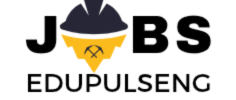Work From Home Jobs in Australia. Learn current salaries ($65K-$120K), top job sites like SEEK and Indeed, plus step-by-step application tips.
Remote Work in Australia
Work from home opportunities have transformed the Australian employment landscape, with 97% of organisations offering some form of flexible remote working in 2024. Australia’s remote work market continues to expand across major cities including Sydney, Melbourne, Brisbane, Perth, and Adelaide, offering professionals unprecedented flexibility and work-life balance.
The shift toward remote employment has created diverse opportunities across industries, from technology and finance to customer service and creative roles. Australian employers increasingly recognize the benefits of remote work arrangements, including reduced overhead costs, access to broader talent pools, and improved employee satisfaction.
[HDquiz quiz = “169”]
[ninja_form id=2]
Current Salary Expectations for Australian Remote Workers
Average Remote Work Salaries
In Australia the average remote worker earns an annual salary of $87,750, which is slightly below the national average across all jobs. However, salary ranges vary significantly by industry and experience level.
Salary Ranges by Experience Level
Entry-Level Remote Positions
- Annual Salary: $45,000 – $65,000 AUD
- Hourly Rate: $25 – $35 AUD per hour
- Monthly Income: $3,750 – $5,400 AUD
Mid-Level Remote Professionals
- Annual Salary: $65,000 – $95,000 AUD
- Hourly Rate: $35 – $50 AUD per hour
- Monthly Income: $5,400 – $7,900 AUD
Senior-Level Remote Specialists
- Annual Salary: $95,000 – $150,000+ AUD
- Hourly Rate: $50 – $80+ AUD per hour
- Monthly Income: $7,900 – $12,500+ AUD
Read Also: CNA Jobs in the USA with Visa Sponsorship- 2025 Guide
Industry-Specific Remote Salary Ranges
Technology and IT Tech workers in the country tend to make between 70,000 AUD (approximately $43,290) and 200,000 AUD (roughly $123,688) per year. Software developers, data analysts, and cybersecurity specialists command premium salaries in the remote market.
Finance and Accounting
- Financial analysts: $70,000 – $120,000 AUD
- Accountants: $55,000 – $90,000 AUD
- Financial advisors: $80,000 – $140,000 AUD
Marketing and Communications
- Digital marketers: $60,000 – $100,000 AUD
- Content creators: $50,000 – $85,000 AUD
- Social media managers: $55,000 – $95,000 AUD
Customer Service and Support roles in customer service or support offer slightly lower pay but greater flexibility, typically ranging from $40,000 – $65,000 AUD annually.
Freelance and Contract Opportunities
The current average salary range for a Remote Job in Australia is around $4.7k – $10.5k per month, while some companies offer salaries as high as $25k per month. Freelance rates vary widely based on specialization and client requirements.
Top Industries Offering Remote Work in Australia
High-Growth Remote Sectors
- Information Technology and Software Development
- Digital Marketing and E-commerce
- Finance and Financial Services
- Education and Online Training
- Healthcare and Telemedicine
- Creative Services and Design
- Customer Support and Virtual Assistance
- Content Creation and Copywriting
Emerging Remote Opportunities
Other notable industries seen with the highest remote job postings include agriculture and forestry (up +10.5%), physicians and surgeons (up +5%), and real estate (up +4.7%). These sectors demonstrate the expanding scope of remote work possibilities.
Step-by-Step Guide to Finding Remote Work in Australia
Step 1: Prepare Your Remote Work Profile
Essential Preparation Tasks
- Update your resume to highlight remote work experience and self-management skills
- Create a professional home office space with reliable internet (minimum 25 Mbps)
- Gather necessary documents: ABN (if freelancing), tax file number, bank details
- Test video conferencing software (Zoom, Teams, Google Meet)
- Develop a professional online presence on LinkedIn
Step 2: Register with Major Australian Job Platforms
SEEK.com.au
- Australia’s largest job board with extensive remote listings
- Create detailed profile highlighting remote work capabilities
- Set up job alerts for “work from home” and “remote” positions
- Upload tailored cover letters for different industries
- Website: https://www.seek.com.au/work-from-home-jobs
Indeed Australia
- Discover 6,381 Work From Home jobs on Indeed.com
- Complete comprehensive profile with skills assessments
- Enable recruiter contact and set salary expectations
- Apply advanced search filters for location-independent roles
- Website: https://au.indeed.com/q-work-from-home-jobs.html
LinkedIn Jobs
- Today’s top 984 Work From Home jobs in Australia
- Optimize LinkedIn profile with relevant keywords
- Connect with industry professionals and recruiters
- Join remote work groups and participate in discussions
- Website: https://au.linkedin.com/jobs/work-from-home-jobs
Step 3: Specialized Remote Job Platforms
Work From Home Jobs Australia
- Australia’s Remote Employment Marketplace. Find your next WFH or hybrid job at Work From Home Jobs Australia
- Register for curated remote opportunities
- Access hybrid work arrangements
- Website: https://wfhjobs.com.au/
Dynamite Jobs
- International remote opportunities available to Australians
- High-paying positions across various industries
- Detailed salary information and company reviews
- Website: https://dynamitejobs.com/country/remote-jobs-in-australia
Glassdoor Australia
- 6,171 open jobs for Work at home in Australia
- Company reviews and salary insights
- Interview preparation resources
- Website: https://www.glassdoor.com/Job/australia-work-at-home-jobs-SRCH_IL.0,9_IN16_KO10,22.htm
Step 4: Freelance and Contract Platforms
Upwork Australia
- Create comprehensive freelancer profile
- Showcase portfolio with Australian client testimonials
- Set competitive rates based on local market standards
- Submit tailored proposals highlighting timezone advantages
- Build long-term client relationships
Freelancer.com
- Complete detailed profile with relevant certifications
- Take skill tests to improve profile visibility
- Bid strategically on Australian-based projects
- Maintain high client satisfaction ratings
- Expand services based on market demand
Fiverr
- Create service packages targeting Australian businesses
- Optimize gig descriptions with local keywords
- Offer services during Australian business hours
- Build reputation through exceptional service delivery
- Scale business with repeat customers
Step 5: Direct Company Applications and Networking
Research and Direct Applications
- Identify Australian companies with remote-first policies
- Visit company websites and career pages regularly
- Submit tailored applications showcasing remote work abilities
- Follow up professionally after applications
- Build relationships with hiring managers on LinkedIn
Networking Strategies
- Join Australian remote work communities and forums
- Attend virtual networking events and webinars
- Participate in industry-specific online groups
- Connect with other remote professionals for referrals
- Engage with potential employers on social media
Essential Skills for Remote Work Success in Australia
Technical Requirements
- Proficiency in collaboration tools (Slack, Microsoft Teams, Asana)
- Strong internet connection and backup connectivity options
- Video conferencing etiquette and professional presentation
- Cloud-based software experience (Google Workspace, Office 365)
- Basic troubleshooting skills for common technical issues
Professional Skills
- Excellent written and verbal communication
- Self-motivation and time management
- Cultural awareness for international team collaboration
- Project management and organization abilities
- Adaptability to different time zones and work schedules
Legal and Tax Considerations for Australian Remote Workers
Tax Obligations
Australian remote workers must understand their tax responsibilities, particularly if working for international companies. Deductions for expenses you incur to work from home such as stationery, energy and office equipment are available through the Australian Taxation Office.
ABN Requirements
Freelancers and contractors typically need an Australian Business Number (ABN) for invoicing and tax purposes. Consider consulting with a tax professional to ensure compliance with Australian tax laws.
Superannuation
Permanent remote employees are entitled to superannuation contributions, while contractors may need to manage their own retirement savings through self-managed super funds.
Building a Successful Remote Career in Australia
Professional Development
- Continuously update technical skills through online courses
- Obtain industry-relevant certifications and qualifications
- Attend virtual conferences and professional development events
- Build expertise in emerging technologies and trends
- Develop leadership skills for potential team management roles
Career Advancement Strategies
- Seek mentorship from successful remote professionals
- Document achievements and quantify impact on business outcomes
- Pursue additional responsibilities and cross-functional projects
- Build a personal brand through content creation and thought leadership
- Consider transitioning from employee to consultant for higher earnings
Work-Life Balance Tips
- Establish clear boundaries between work and personal time
- Create a dedicated workspace separate from living areas
- Maintain regular schedules and take proper breaks
- Stay connected with colleagues through virtual social interactions
- Prioritize physical activity and mental health
Avoiding Remote Work Scams
Red Flags to Watch For
- Requests for upfront payments or personal financial information
- Unrealistic salary promises or “get rich quick” schemes
- Poor communication and unprofessional job postings
- Lack of company verification or legitimate business registration
- Pressure to start immediately without proper interview processes
Verification Steps
- Research companies thoroughly using ASIC business registry
- Verify recruiter credentials through LinkedIn and company websites
- Request video interviews rather than text-only communications
- Ask for detailed job descriptions and employment contracts
- Trust instincts if something seems too good to be true
Future of Remote Work in Australia
The Australian remote work landscape continues evolving with hybrid models becoming increasingly popular. 78% of Australian employees favour a hybrid work arrangement, suggesting continued growth in flexible employment options.
Technology advances, changing employer attitudes, and worker preferences indicate that remote opportunities will remain a significant part of Australia’s employment ecosystem. Professionals who develop strong remote work skills and build relevant experience will be well-positioned for future career success.
Frequently Asked Questions (FAQs)
1. What are the average salaries for remote workers in Australia?
According to Finder’s CST survey and multiple industry reports, the average remote salary ranges from AUD $65,000 to AUD $120,000 per year. Entry-level positions typically start around $45,000 AUD, while senior specialists can earn $150,000+ annually. Technology and finance roles generally offer higher compensation than customer service or administrative positions.
2. Do I need special qualifications to work remotely in Australia?
Most remote positions require the same qualifications as traditional office jobs, plus strong self-management and communication skills. Essential requirements include reliable internet, a professional workspace, and proficiency with digital collaboration tools. Some industries may require specific certifications or licenses, but many entry-level remote opportunities are available to candidates with basic computer literacy and relevant experience.
3. How do taxes work for Australian remote workers?
Australian residents pay income tax on all earnings, regardless of whether they work remotely or in an office. Remote workers can claim deductions for home office expenses, including internet costs, office equipment, and utility bills. If working for international companies, additional tax considerations may apply. It’s recommended to consult with a qualified accountant familiar with remote work taxation.
4. What are the best job sites for finding remote work in Australia?
The most effective platforms include SEEK.com.au, Indeed Australia, LinkedIn Jobs, and Work From Home Jobs Australia. SEEK currently lists thousands of remote positions across various industries, while LinkedIn offers extensive networking opportunities. Specialized platforms like Dynamite Jobs focus specifically on high-quality remote opportunities with competitive salaries.
5. How can I avoid remote work scams when job hunting?
Always ensure you verify company credentials through ASIC business registry, research hiring managers on LinkedIn, and request detailed employment contracts. Be wary of positions promising unrealistic earnings or requiring immediate starts without proper vetting procedures.

